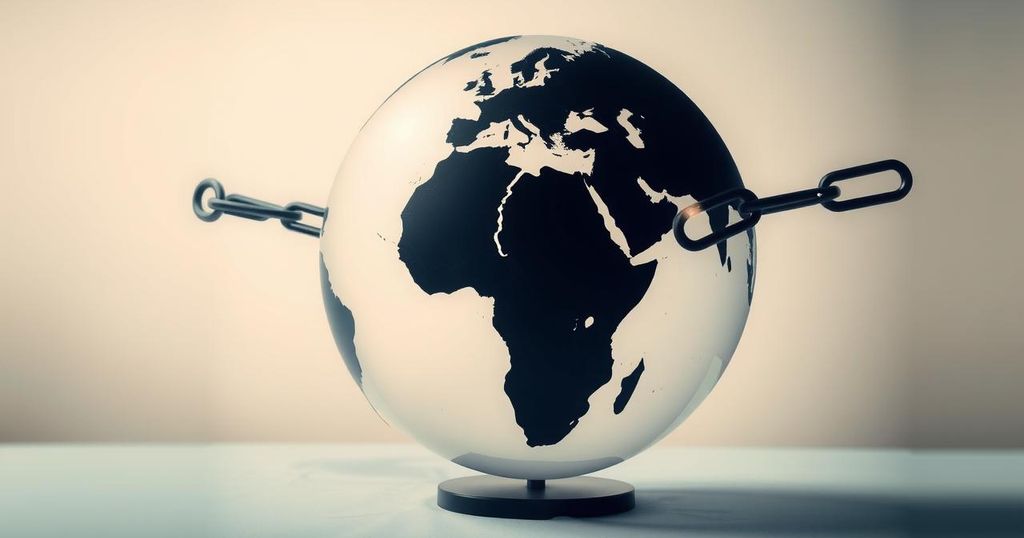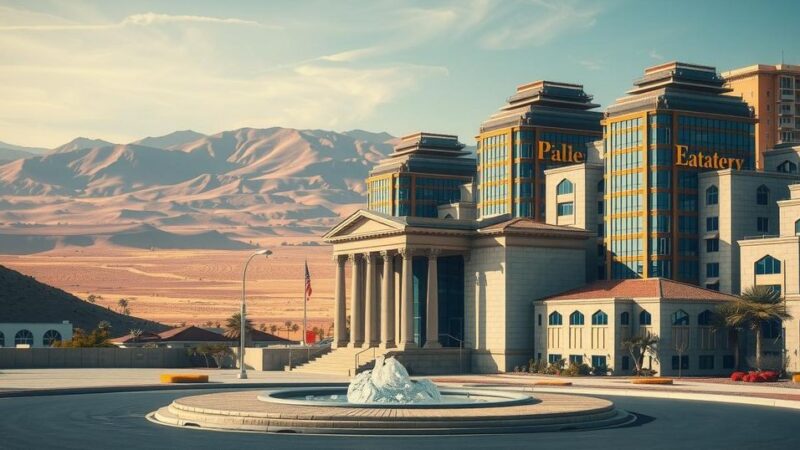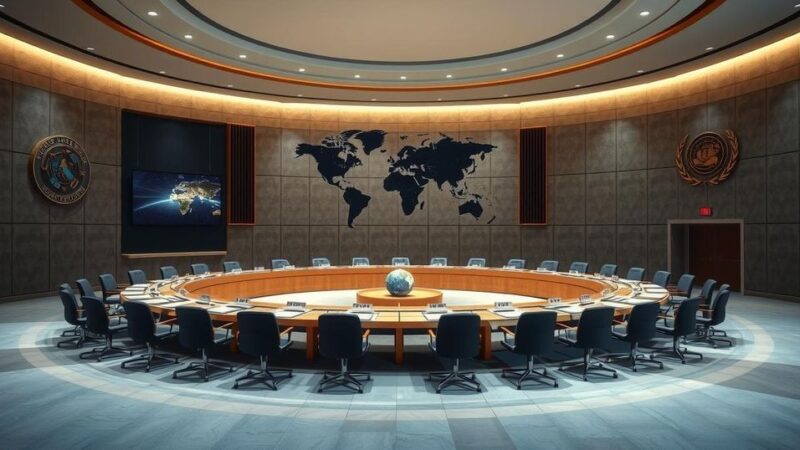President Trump has ordered a freeze on U.S. aid to South Africa due to a controversial land expropriation law that allegedly discriminates against the white minority. The measure aims to rectify injustices from the apartheid era but has sparked significant controversy. Additionally, a resettlement program for threatened white farmers is being considered as part of this policy shift.
President Donald Trump has formalized a freeze on U.S. aid to South Africa in response to a new land expropriation law, which the White House argues discriminates against the white minority. The Trump administration’s executive order reflects concerns over the South African government’s actions that are perceived as bias against ethnic minority farmers. The U.S. government seeks to halt all assistance until South Africa ceases its support for alleged hostility toward these communities.
This decision comes after South African President Cyril Ramaphosa signed into law an Expropriation Act, which empowers the government to reclaim land under certain conditions. The intent of this law is to rectify injustices from the apartheid era, during which non-white citizens were forcibly deprived of their land. The law has drawn criticism, particularly from figures like Elon Musk, who highlight the potential negative implications for South Africa’s white population.
Trump’s order is part of a broader shift in U.S. foreign policy, promoting what he refers to as an “America First” doctrine, which has seen a general scaling back of overseas aid. The executive order also alludes to South Africa’s actions regarding accusations against Israel at the International Court of Justice. The administration plans to propose a resettlement program for white South African farmers threatened by these legal changes.
This development underscores the ongoing tensions surrounding land reform policies in post-apartheid South Africa. As the government advances initiatives aimed at addressing historical injustices, such moves remain contentious. The situation reflects deep-seated issues regarding race, land ownership, and political relations within South Africa and its interactions with the international community.
The land expropriation law in South Africa has significant historical context rooted in the country’s apartheid past, which enforced racial segregation and economic disparities. The Expropriation Act, recently enacted, aims to reverse some of these injustices by allowing state-controlled appropriation of land for public benefit. In response, various factions, including international allies of South African whites, have voiced concerns over potential discrimination under the new law.
In conclusion, the U.S. decision to freeze aid to South Africa highlights the complexities of dealing with historical injustices while attempting to promote equality. The intersection of race and land ownership remains a volatile issue in South Africa, exacerbated by international responses. As political dynamics evolve, it remains crucial to engage in constructive dialogue that can address the needs of all communities involved.
Original Source: www.pbs.org






